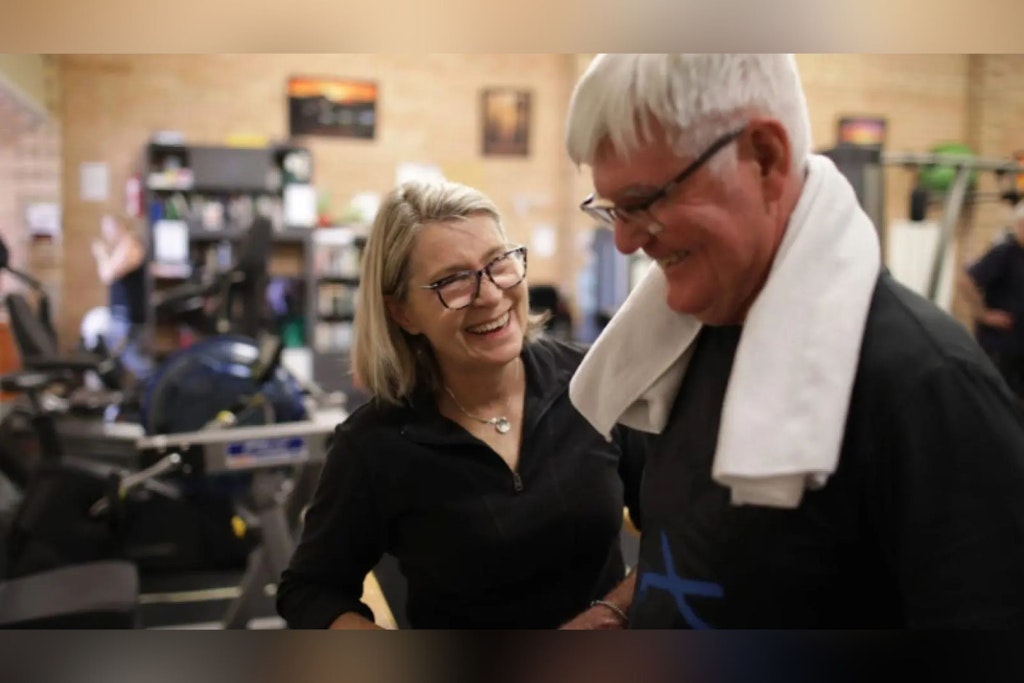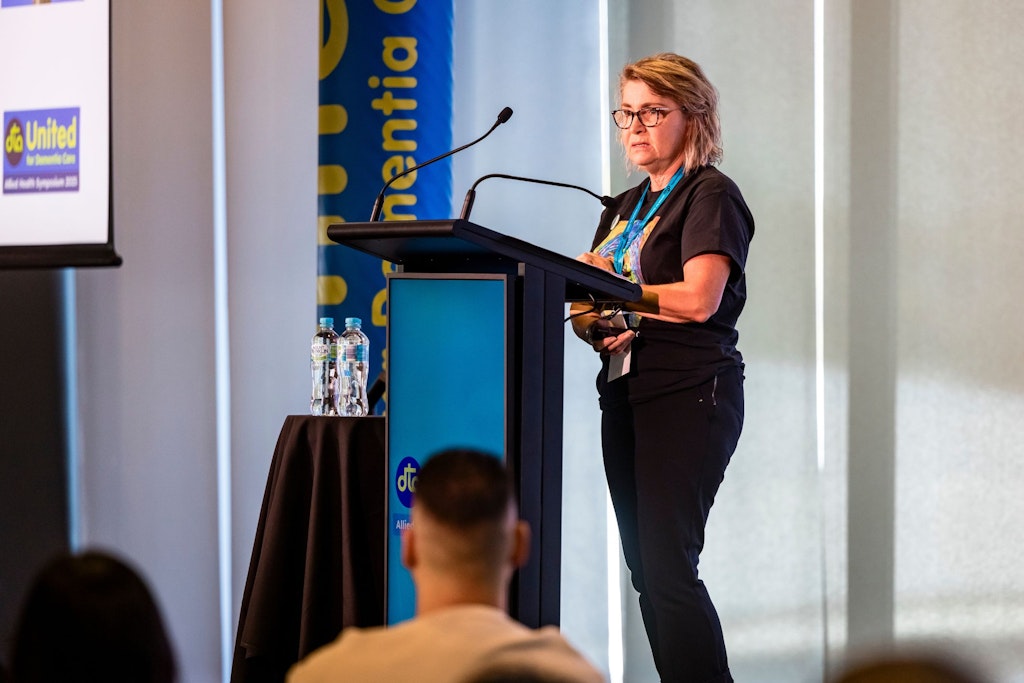When care becomes personal: A dementia diagnosis, love and loss
Last updated on 27 May 2025

Caring for others is the heartbeat of a care professional’s work: day in and day out, expertise, compassion, and resilience is poured into supporting those in need. Yet, when the responsibility of caregiving extends to a loved one, even professionals face a profound and unexpected challenge.
Balancing the demands of work with the deeply personal task of caring for someone close can blur the lines between duty and devotion, testing emotional and physical limits.
Vicki Barry is an experienced manager and leader who has worked at organisations such as Diabetes WA, UnitingCare West, Palliative Care WA and headspace.
Roughly 14 years ago, her husband, Michael, started showing signs of memory loss. Vicki was caught off guard by the sudden change, especially as the pair had only been married for a few years.
At the time, Vicki was the Operations Manager for headspace. She felt comfortable with her understanding of mental health and cognitive challenges, yet she ‘couldn’t quite pinpoint what was going on’. Google suggested dementia, but she believed Michael was too young.
“Like most people, I thought dementia’s reserved for the aged and frail. It took me a while to realise his symptoms were looking like dementia,” Vicki shared with Hello Leaders.
“I went to his GP seeking support and advice and sadly got dismissed because ‘if Michael had an issue, Michael would come and see him’ and was told I should go home and ‘be a good wife’.
“I was stunned. I had no words. I realised I was on my own.”
With limited friends and family to lean on, Vicki’s search for answers pushed her to breaking point. Thankfully, the help of a counsellor through Alzheimer’s WA provided enough information and affirmation that Vicki knew the right move to secure a diagnosis.
Five years later, they finally had one: young onset dementia.
“This was far too long because we missed out on a lot of support at that time. Michael exited from work in an unpleasant way and I was forced into early retirement. That had a financial impact,” Vicki explained.
“Until you have that diagnosis, you can’t access funding or support. That diagnosis is your starting point. Our health system has to get better. We are blessed in Australia with the health system we have, but this is definitely a gap.”
Building a trusted support network
Prior to Dementia Australia’s creation, Alzheimer’s WA offered immeasurable support for Vicki and Michael. In 2016, it helped them to join a young onset dementia peer support group, a safe space where they could navigate changes together and learn from one another.
Over time, the pair established a tight-knit friendship circle with three other couples. They have traveled together throughout Western Australia to the likes of Esperance, Kalgoorlie, and Exmouth.
“Because we know dementia and we can support one another, it makes being away a lot more comfortable. At the end of the day, we can come together and have drinks and dinner and it normalises what we’re doing,” she added.
These relationships formed as some older ones broke apart: the stigma attached to a dementia diagnosis led to some friends pulling away. Vicki believes uncertainty and fear played a role.
It’s why the power of peer support has been one of the best things for the couple. Vicki emphasised its importance for primary caregivers.
“No one gets dementia unless you’re actually living it,” she said.
A desire to help and educate others is why Vicki never shied away from the diagnosis. She’s confident talking about dementia and what it means for them.
“I’m very upfront about telling people Michael has dementia. He kind of doesn’t like that, but I said ‘Michael, it’s good they know because then they know how to help us.’ They’re far more understanding of what’s going on,” Vicki added.
“We shouldn’t be afraid to speak up. There’s a responsibility all the way around. There are teachable moments.”

In the years following Michael’s diagnosis, Vicki founded the Young Dementia Network WA. More recently, she got involved with the Young People in Nursing Homes National Alliance and its affiliated Young Onset Dementia WA Impact Network, shortly before Michael was admitted into residential aged care.
Her focus is now on ensuring that his aged care provider truly understands his needs and wants, and is taking the time to get to know him.
“Since Michael’s been in residential care, they have been unable to give him the right cup of tea. Earl Grey, no milk, no sugar and a teaspoon of honey instead. Do you think that he can get that? It’s still hit and miss,” Vicki said.
“They have all this information, but seriously, no one looks at it. We have technology, all these tools… I would say to the providers, please get to know the person.
“I have a poster in his room with ten dot points so if someone took two minutes to read it they would know enough about Michael and they could actually support him in a meaningful way.”
Don’t forget to look after yourself
It’s easy to forget to look after yourself when caring for others. Care professionals are not immune to self-care blindness
Vicki’s journey has involved plenty of twists and turns. Even 18 months after Michael moved into residential care, her sleeping pattern remains disrupted because of all the nights where she had to get up and help him, or keep him safe.
Her body also had a major physical reaction when he entered residential care, with the necessary but heartbreaking decision leading to a PTSD side effect called myofascial pain. This resulted in Vicki’s entire body regularly seizing up in pain, often preventing her from getting out of bed for hours at a time. The social isolation from caring has also contributed to heightened social anxiety.
Personal obstacles like these have made it difficult for Vicki to reclaim her own life back after more than a decade caring for her husband. The small things like yoga, swimming, pilates and walking help, but she still believes that more support is required for carers while they’re looking after people.
“We don’t get support as carers. I would love for there to be an Airbnb for respite care. I couldn’t even plan a holiday away, if I wanted to go overseas, because there was no guaranteed respite placement for Michael,” she said.
Navigating this new chapter, Vicki’s commitment to reclaiming a sense of normalcy for herself and for ensuring that Michael receives the best support in residential care — and a good cup of tea.